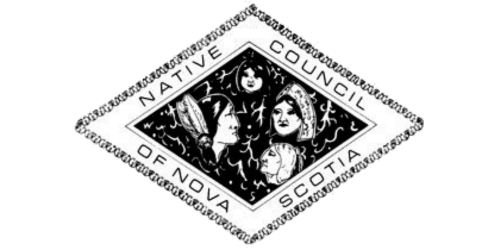Funding to further your career in the clean economy
Apply for the IEP BursaryGet up to $10,000 with the IEP Bursary
Indigenous Nova Scotians can apply for funding through the IEP Bursary to support their career aspirations in the clean economy.
The IEP Bursary will cover the cost of your training, program, certification and/or equipment up to $10,000.
Funding is available for:
- Tuition: Course tuition/fees at educational institutions (programs up to one year in length).
- Paid Training: Certifications from training institutes or community organizations, or professional development opportunities.
- Equipment: Cost of textbooks, materials, tools and equipment that support your education or work.
- Much more—tell us how we can help!
This bursary might be for you if you are:
- Attending university or college studying to work in the clean economy.
- Planning to complete a course, training program or certification to upskill your career in the clean economy.
- Looking to attend a conference, tradeshow or other professional development opportunity related to the clean economy.
- In need of new equipment, materials, tools and/or textbooks and supplies to support your career or education in the clean economy.
To qualify, applicants must:
- Be at least 15 years old (no upper age limit).
- Reside in Nova Scotia.
- Identify as Indigenous.
- Complete an intake with Native Council Nova Scotia (NCNS).
Check out our list of pre-approved programs and materials. Don’t see your program, training or equipment listed? Complete the intake process below and we will work with you to see if you qualify.
Tuition: Course tuition/fees at educational institutions (programs up to one year in length).
Eligible programs for the IEP Bursary include, but are not limited to:
NSCC
- Marine Geomatics
- Oceans Technology
- Wind Turbine Technician
- Electrical Technician
- Building Systems Technician (HVAC&R)
- Climate Change – Building Performance Technology
- Refrigeration and Air Conditioning
- Refrigeration and Air Conditioning – Geothermal
- Electrical Construction and Industrial
- Electrical Construction and Industrial – Accelerated
- Carpentry Certificate
- Carpentry Certificate – Accelerated
- Carpentry Diploma,
- Carpentry Diploma – Accelerated
- Civil Engineering Technology
- Construction Project Management
- Drafting -Architectural
- Electrical Engineering Technology
- Forest Stewardship Essentials
- Aquaculture Management
- Quality Assurance
- Natural Resources Environmental Technology
- Geographic Information Systems
- Geographic Information Systems (GIS) – Cartography and Geovisualization
- Geographic Information Systems (GIS) – Remote Sensing
- Geographic Information Systems Technician
- Geospatial Data Analytics
- Survey Technician
- Geomatics Engineering Technology
- Therapeutic Recreation
- Tourism Hospitality
- Tourism Management
Dalhousie University
- Water Stewardship Across Wabanaki (Masters and PHD options)
Mount Saint Vincent University
- Kinu Tourism Program
Paid Training: Certifications from training institutes or community organizations, or professional development opportunities.
Example programs include, but are not limited to:
NSCC
- Bridges to Construction
- Intro to Solar Photovoltaic Systems
- Solar Photovoltiac System Installation and Fall Arrest
- Solar PV Systems Design
- Solar Photovoltaic Troubleshooting and Maintenance
- Solar Photovoltaic System Grid Interconnection
- Marine Foundations – Marine Emergency Duties
- Marine Foundations – Small Vessel Operator Proficency
- Atlantic Trades Business Seal
- Start-up Accelerator
- Construction Estimating
- Forest Stewardship Essentials
- Entry-Level Technical Applications in Hydrogen for Process Occupations
METI
- Environmental Remediation Training
- Transportation of Dangerous Goods Training
- Earthmoving Operator Training
Atlantic Environmental Training & On-Site Services Incorporated
- Hazardous Waste Operations and Emergency Response Training (HAZWOPER)
- Environmental Awareness and Environmental Assessment Training
- Transportation of Dangerous Goods Act and Regulations
ALL-TECH Environmental Services Limited
- Silica & Mercury Awareness
Greenspring Bioinnovation Hub
- Fermentation Technician Rapid Upskilling Program
Blue House Energy
- Healthy Housing Foundations
Equipment can include the cost of textbooks, materials, tools and equipment required to support your education or continued work. You do not have to be registered in an academic program or training program to qualify for this part of the bursary.
Equipment eligible for bursary funds include:
- PPE (Hard hats, Vests, Ear Protection, Boots, etc)
- Textbooks
- Laptop/Tablet
- Computer Programs
- Field Equipment (Chestwaders, Water Quality Monitors, Survey Equipment, etc)
- Certifications within a training program (Food Handler’s, Electrofishing, etc)
Please note: The IEP Bursary does not cover daily living expenses, such as groceries, household bills, bus passes (unless required within tuition), gas, vehicle maintenance, or childcare expenses.
In some cases, residence fees may be covered if those costs are a barrier affecting the participants’ ability to attend the educational institution.
Apply now
Applications open August 1, 2025 and will be accepted on a first come, first served basis.
Our partners
The Indigenous Energy Project is a partnership between Native Council of Nova Scotia (NCNS) and Clean Foundation funded by Employment and Social Development Canada. This project will host a variety of initiatives, services and sessions across Mi’kma’ki, all with the end goal of providing employment opportunities in the clean economy to Indigenous job seekers within the borders of Nova Scotia.


